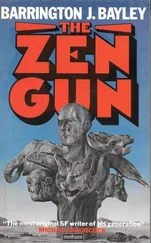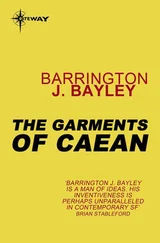“I can’t accept that explanation,” Heshke had objected. “What about the Lorenes?”
“True, the Lorenes had this ability to an ever greater degree. But then, we helped you to defeat the Lorenes. You wouldn’t have done it alone.”
And to that Heshke had no answer. It was strange, talking to someone whose picture of history didn’t follow the Titan version of True Man versus the rest. In official histories, past alliances with other subspecies were always played down, and it was never admitted that they could have been important for the outcome. True Man had saved himself unaided, so the text ran, from numerous horrible enemies.
Heshke had soon ceased to battle with contending concepts; it was a relief to be away from it all.
Sometimes he watched Herrick as the Amhrak tinkered, using whatever components he could get his hands on, with an old project of his that had been interrupted by the war: television without any transmitter or camera, only a receiver. Herrick had discovered that by means of a long-range interference technique light-waves could be converted, at a distance, into radio or UHF waves, and these could then be picked up at the control station. In other words it was possible to snatch pictures out of thin air from hundreds of miles away. Heshke would sit with Herrick for hours while he fiddled with his crackling apparatus, occasionally getting a fuzzy, briefly recognisable picture of a mountaintop or a stretch of ocean. There was little control over where the pictures came from, as this apparently depended on the Earth’s magnetic field.
The sun slipped down the horizon. Heshke began to feel cold. He got up, stretched himself, and went inside.
Herrick and Sobrie were seated at a table, both looking grim and sober – Sobrie more so, Heshke thought. He looked up as the archaeologist came in.
“Bads news, I’m afraid, Rond.” He gestured to Herrick. “We’ve just heard from Pradna.”
“You can still do that?”
Sobrie nodded. “In the past few weeks we’ve been able to pick up with whatever remnants of the League survived the mass defection to the Titans. Slowly, they’re putting themselves together again and thanks to that we still have contacts inside the administration.”
He paused. Heshke, in fact, had been impressed by how easily Sobrie had been able to make arrangements for them in Amhrak country. The Panhumanic League’s networks apparently extended right into most of the dev reservations; Herrick himself was involved in it.
“Limnich has ordered all reservations to be terminated,” Sobrie said quietly. “It’s the end of the road for the Amhraks, for all of us.”
“We always knew it would happen sooner or later,” Herrick said without bitterness. “All we can do is accept it.”
Heshke, too, had suspected that this might be coming on.
He reached into his pocket and took out the little communicator Su-Mueng had given him. That young man might have had some intimation of what was impending, too. How else to explain his embarrassed, evasive manner at their last meeting, when he’d urged Heshke to use the communicator and leave Earth?
Su-Mueng had obviously managed to worm his way into the Titans’ good books somehow. He’d waved away Heshke’s concern for his safety; he had an understanding with Limnich, he’d said vaguely; he was doing important work for him. What an improbable partnership, Heshke told himself.
He placed the communicator on the table. “You can get out of here,” he said to Sobrie. “Go to that space city I told you about. They’ll receive you; they’re very hospitable.”
“Like a rat leaving a sinking ship? No, I don’t think so. You should go, naturally, Rond. You’ve no cause to be here in the first place.”
“No, I’m staying behind,” Heshke said with a sigh. “Not out of any sense of heroism, but because this insane world has given me too much of a spin as it is. Things have been much too hectic for me lately; I was growing more and more tired by the day. This reservation’s the only place I’ve been able to rest, and I like it here.”
“Rond is right,” Herrick rumbled, “if you have a way of escape you should take it, Sobrie. Not necessarily for your sake, but for Layella’s. It would be false heroism to sacrifice her, too, when she’s entirely innocent.”
Yes, Layella… Sobrie pondered. “Couldn’t we take some Amhraks off, too?” he suggested shyly. “A few… breeding pairs?”
Herrick shook his head, smiling with bittersweet amusement. “Lonely survivors of a vanished race? No one would be found to fill the role. We’ve long been accustomed to the idea of species death.”
“I’ll write out a report,” Heshke said, “and you can be an envoy to Retort City for Su-Mueng and myself. They ought to be told what Limnich’s answer is, anyway.”
“I wish you’d come too.”
“No, I’m finished with gadding about through space and time. Having to die doesn’t worry me; I’m just going to relax and enjoy being alive until the Titans get here.”
The vast cavern complex echoed and thundered to the clatter and roar of machinery. Limnich, looking on the scene from the manager’s gallery, nodded with satisfaction. So far his inspection tour of the thirteen main installations involved in Operation Century had proved the efficiency of his administration.
His eye swept over the progress reports, abstracting with skill the salient figures. “I see that, starting from baseline, you’re twelve per cent ahead of schedule,” he commented.
The manager, a rough-looking individual with a hard, lumpy face, was standing stiffly by his side. “That’s right, Planetary Leader,” he said, pride edging into his voice.
“I’ll expect the same rate of progress, namely a twelve per cent increase over projected output – plus your current output – during the next identical period.”
“That represents an exponential increase in production, Leader. But if the materials and components arrive as ordered—”
“They will,” Limnich told him curtly. He’d found that demanding the near-impossible frequently produced miracles.
Followed by his entourage, he went with the manager the length of the gallery and passed through a tunnel to an adjoining series of caverns: one of the training grounds of the Legions of Kronos. They walked past row after row of sleek time-travelling war machines, each projecting from its launcher as if eager to depart for the future.
From ahead came hoarse shouts and stamping of feet as men were put through the drill designed by psychologists to bring the nervous system to a peak of alertness. Titan-Colonel Brask met Limnich at the entrance to the drill cavern, saluted, and then turned to bellow commands, forming the squads into open-order ranks and standing them to attention. Limnich took his time over the inspection, pausing at nearly every man to look him over, glancing at the special gadgets of the time-combat kits they wore. Meanwhile, from yet another cavern came a massive fuzzy roaring noise: the sound of scores of time travellers warming up.
Finally he pronounced himself satisfied. Brask escorted him to the third cavern where the crews stood by their machines in readiness for the demonstration. At a signal from Brask they filed aboard. Moments later the fuzzy racket intensified and the time travellers all vanished together, fading away to go hurtling in formation through non-time.
“Impressive,” said Limnich. “Very impressive.”
“It will be even more impressive when they arrive in enemy time loaded to capacity with hydrogen bombs,” Brask said with incisive satisfaction.
Brask took the Planetary Leader to his office to discuss various details. While they were there the vidcom rang with a message for Limnich.
Читать дальше












